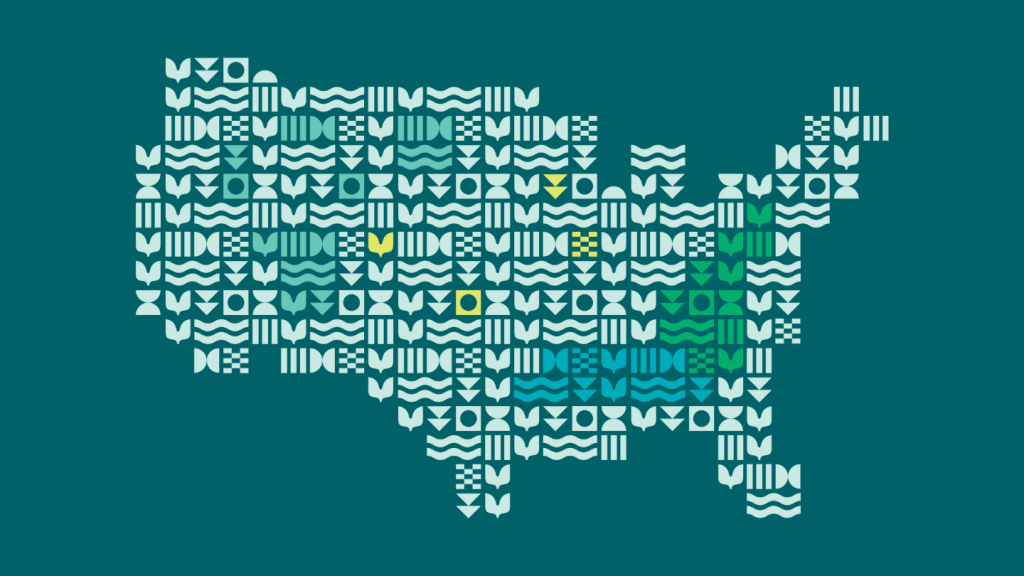The Trust for Civic Life awards initial $8 million in grants to on-the-ground community groups in underfunded regions across the U.S.
Responding to the urgent need to build trust and combat division in America, the Trust for Civic Life announced today that its first investment will go to innovative groups in rural areas that are connecting their communities and shaping the next generation of civic life. The new philanthropic collaborative, which brings together a diverse group of funders with a range of perspectives, said it awarded its first grants totaling $8 million to 20 local organizations that are rallying communities to solve problems across differences and reimagining civic life in creative ways.
Launched this year, the Trust for Civic Life addresses the lack of national funding for local civic work and the need for grantmaking that gets resources directly in the hands of those who know their communities best. The Trust’s initial focus is rural areas, which are traditionally underfunded by national philanthropy. Despite accounting for 20% of U.S. residents and the vast majority of the nation’s land, rural regions receive only 7% of U.S. philanthropic dollars every year. Little of that funding goes into creating the conditions needed to connect Americans or building the civic foundation required to make democracy thrive.
The Trust for Civic Life is a unique team of over a dozen philanthropic allies working together for the first time, including Rockefeller Brothers Fund, Omidyar Network, Stand Together, Carnegie Corporation of New York, the David and Lucile Packard Foundation, and the Walmart Foundation. The collaborative emerged in response to the 2020 Our Common Purpose report by the American Academy of Arts and Sciences, which outlined strategies to strengthen democracy and counter mistrust and disconnection in America. One of these recommendations was scaling up local civic programs, public gathering spaces and leadership capacity.
“A big part of repairing our democracy is not political, it’s about addressing the underlying issues preventing Americans from connecting with each other and building trust,” said Charlie Brown, the Executive Director of Trust for Civic Life. “Those efforts are happening right now in communities by groups that have strong local ties and know how to break through to their neighbors. This work can have a profound impact – it just needs support to scale and grow.”
The Trust for Civic Life’s first grants support “civic hubs,” locally-led groups reinventing civic programming to meet the changing needs of their communities in a time when Americans are pulling away from traditional civic life. A third of the new grantees reported their communities are facing some type of “toxic polarization,” a division that goes beyond disagreements and begins to create enemies. The new grantees are responding with an entrepreneurial spirit: many are using the arts, hobbies, economic issues, and digital tools to offer new entry points for civic participation and opportunities to bridge divides.
For this inaugural grant cycle, the Trust for Civic Life invested in innovative local efforts emerging from a wide range of rural regions, including Central Appalachia, the Black Belt, the Southwest border, and Tribal lands. Other grants were awarded to communities experiencing major economic or demographic transitions, such as the loss of a significant employer or resource base.
“There is no one-size-fits-all solution that will fix how Americans feel about their country and each other,” said Stephen Heintz, President and CEO of Rockefeller Brothers Fund. “That’s why we need more funders to support locally-led efforts that help people build trust in each other, a sense of agency, and the belief that their participation matters. This is the foundation of our democracy.”
The Trust for Civic Life’s new grantees represent a wide range of community-driven efforts. Grantees include Chinle Planting Hope on the Navajo Nation, which began as a playground project and grew into a community hub that includes a library, bike repair shop, and garden; Communities Unlimited ConnectRURAL program in East Texas, which builds trust by bringing people together to solve small problems as a first step to larger problem-solving efforts; and The Industrial Commons, which created a worker cooperative in Western North Carolina that helps employee owners sit on local boards and offers small businesses affordable loans to grow and expand. Grant amounts ranged from $300,000 to $425,000, awarded over three years. The full list of grantees can be found at www.trustforciviclife.org.
“Grantees of the Trust for Civic Life have a deep sense of what matters to their communities and where there are pathways to common ground,” said David Hsu, Director of Building Cultures of Belonging at Omidyar Network. “They are part of a hopeful pattern of pragmatic problem-solving that is too easy to miss at the national altitude, which is why we are so invested in showing and growing bright spots across the country.”
This is the first of two rounds of grantmaking planned by the Trust for Civic Life in 2024. The next grantmaking cycle will be focused on support for “civic entrepreneurs” – individuals or smaller groups leading experimental programs or introducing innovative projects in rural regions. That grant cycle will open in late summer 2024.
About the Trust for Civic Life
Launched in 2024, the Trust for Civic Life is a new grantmaking collaborative that connects national and regional philanthropy with rural efforts to strengthen community bonds, civic engagement, and everyday democracy. The collaborative brings together a cross-ideological set of funders to invest $50 million over the next five years in a new wave of people, places, and programs that increase trust, belonging and unity in communities. The Trust for Civic Life grew out of the American Academy of Arts and Sciences’ 2020 Our Common Purpose that called for greater investment into civic infrastructure as a necessary path to a stronger democracy. It was initiated by the Rockefeller Brothers Fund, Stand Together, and Omidyar Network, and has grown to include a diverse group of over a dozen philanthropists and foundations. Learn more at www.trustforciviclife.org.

